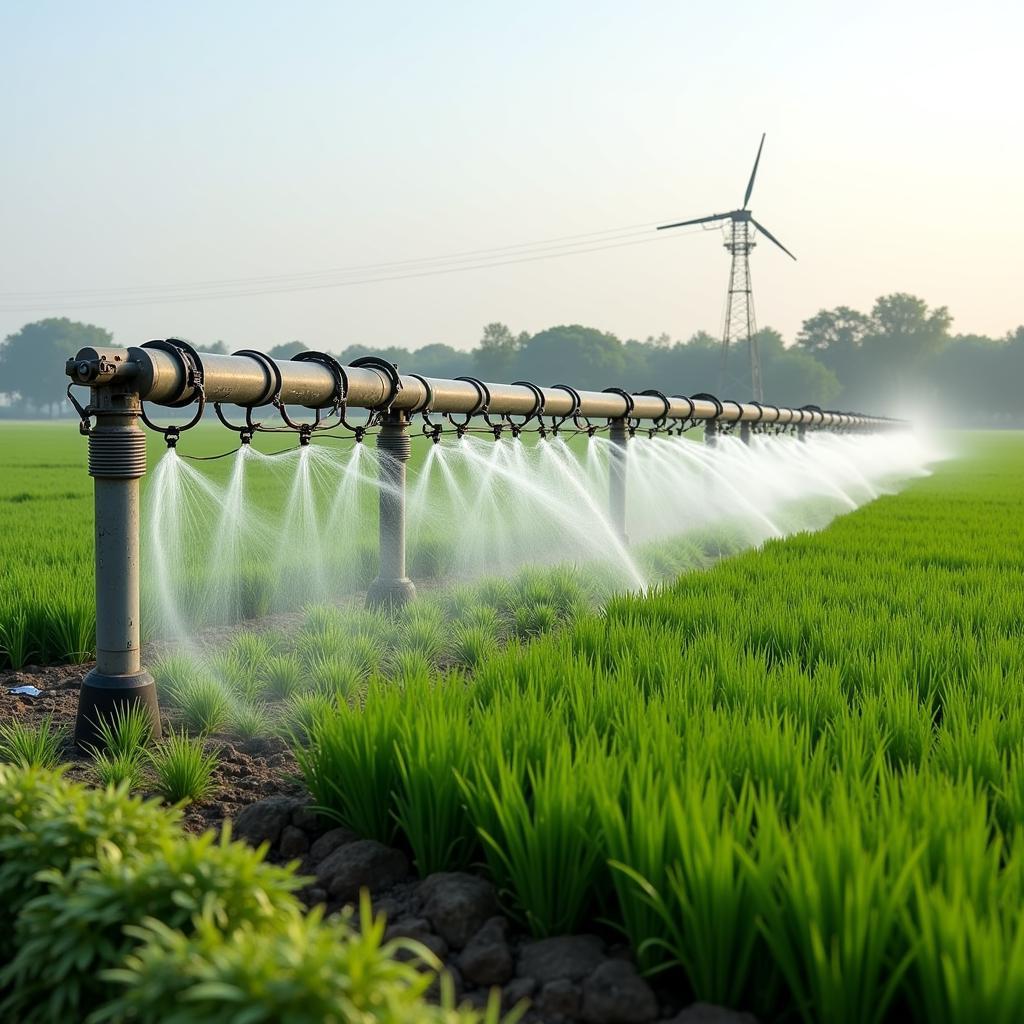Agriculture in Pakistan is a cornerstone of the national economy, contributing significantly to the country’s GDP and employing a large portion of the workforce. This sector, encompassing a diverse range of crops, livestock, and fisheries, faces both opportunities and challenges in the 21st century.
The Significance of Agriculture in Pakistan’s Economy
Agriculture’s importance in Pakistan extends far beyond its direct contribution to the GDP. It plays a crucial role in ensuring food security for a rapidly growing population, generating employment opportunities, particularly in rural areas, and contributing to export earnings. The sector’s performance directly impacts poverty reduction efforts and the overall socioeconomic well-being of the nation.
Key Crops and Production Systems
Pakistan boasts a diverse agricultural landscape, with major crops including wheat, cotton, rice, sugarcane, and maize. These crops are cultivated under diverse production systems, ranging from small-scale subsistence farming to large commercial operations. The country is a significant producer of fruits, vegetables, and spices, further contributing to its agricultural diversity.
Challenges Facing Pakistani Agriculture
Despite its importance, agriculture in Pakistan faces a myriad of challenges, including:
- Climate Change: Increasing temperatures, erratic rainfall patterns, and extreme weather events like floods and droughts pose significant threats to agricultural productivity.
- Water Scarcity: Pakistan faces increasing water stress, impacting irrigation and crop yields.
- Land Degradation: Soil erosion, salinity, and waterlogging are degrading agricultural land, reducing its productivity.
- Lack of Modernization: Outdated farming practices, limited access to modern technology, and inadequate infrastructure hinder productivity and efficiency.
- Market Access and Value Chain Inefficiencies: Smallholder farmers often face challenges in accessing markets and receiving fair prices for their produce.
Government Policies and Initiatives
Recognizing the importance of agriculture, the government of Pakistan has implemented various policies and initiatives aimed at supporting the sector’s growth and development. These include:
- Subsidies: Providing subsidies on inputs like fertilizers and seeds to make them more affordable for farmers.
- Credit Facilities: Facilitating access to credit for farmers to invest in their operations.
- Research and Development: Investing in agricultural research to develop climate-resilient crop varieties and improve farming practices.
- Infrastructure Development: Improving irrigation systems, storage facilities, and transportation networks to reduce post-harvest losses and improve market access.
 Modern irrigation system in a Pakistani farm
Modern irrigation system in a Pakistani farm
The Future of Agriculture in Pakistan
The future of agriculture in Pakistan lies in embracing sustainable and climate-smart practices, leveraging technology, and strengthening value chains. Key areas of focus include:
- Climate-Smart Agriculture: Adopting farming practices that enhance resilience to climate change, conserve water, and improve soil health.
- Precision Agriculture: Utilizing technology like sensors, drones, and data analytics to optimize input use, monitor crop health, and improve yields.
- Value Chain Development: Connecting farmers to markets, promoting value addition, and reducing post-harvest losses to ensure better returns for farmers.
- Capacity Building: Equipping farmers with the knowledge and skills to adopt modern farming practices and adapt to the changing climate.
Conclusion
Agriculture in Pakistan stands at a critical juncture. By addressing the challenges and capitalizing on the opportunities, the sector can continue to play a pivotal role in the country’s economic growth and social development. Embracing innovation, promoting sustainable practices, and empowering farmers will be crucial in shaping a resilient and prosperous agricultural future for Pakistan.
FAQs
1. What is the contribution of agriculture to Pakistan’s GDP?
Agriculture contributes approximately 20% to Pakistan’s GDP, making it a vital sector of the economy.
2. What are the major challenges faced by the agriculture sector in Pakistan?
Key challenges include climate change, water scarcity, land degradation, outdated farming practices, and market access issues.
3. What measures is the government taking to support agriculture?
The government is implementing various policies, including providing subsidies, facilitating credit access, investing in research and development, and improving infrastructure.
For further information and resources on related topics, you can explore these articles:
- The Environment of Pakistan by Huma Naz Sethi PDF
- Literacy in Pakistan Essay
- Economic Survey of Pakistan 2016 PDF
We encourage you to share your thoughts and questions in the comments section below. For personalized assistance or inquiries, please contact our team at +923337849799, email us at [email protected], or visit our office located at Dera Ghazi Khan Rd, Rakhni, Barkhan, Balochistan, Pakistan. Our dedicated customer support team is available 24/7 to serve you.